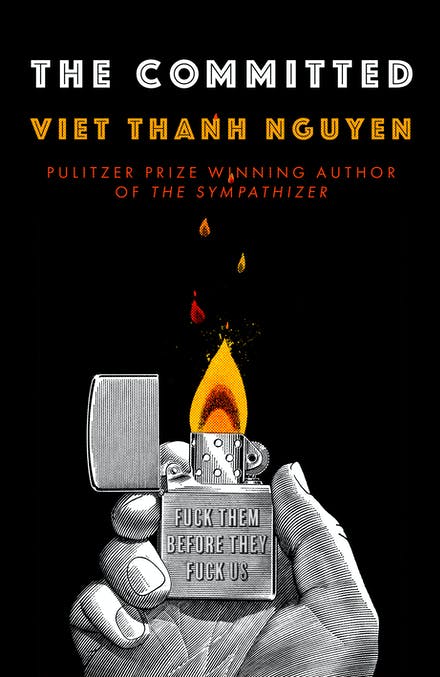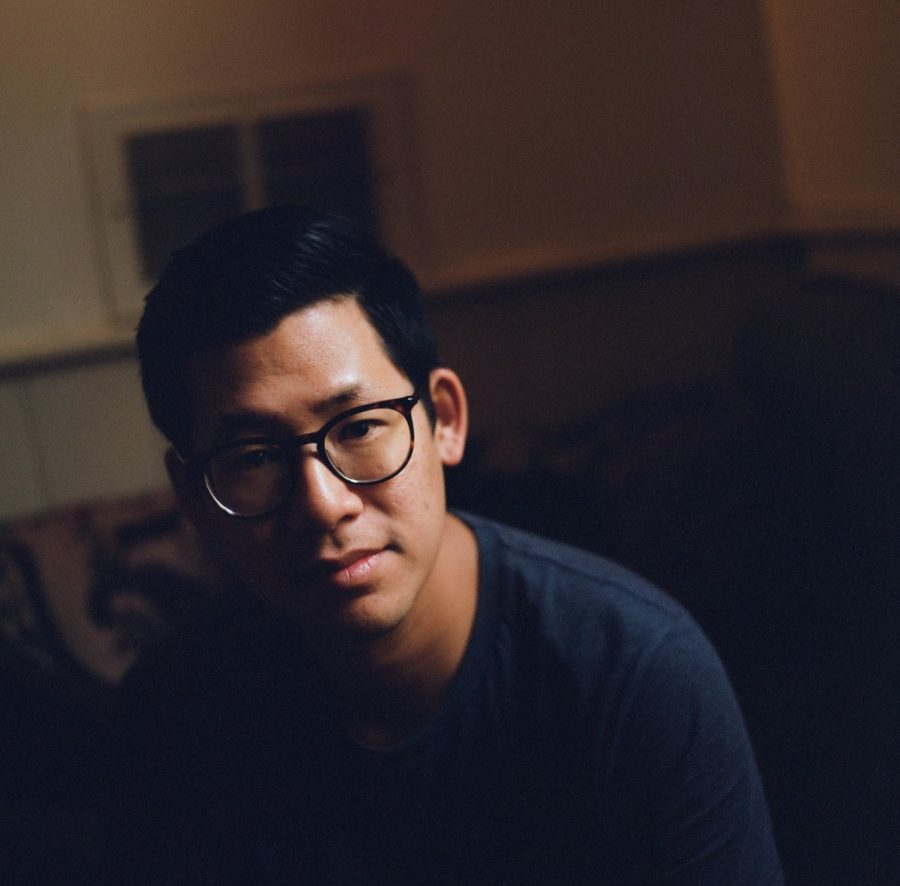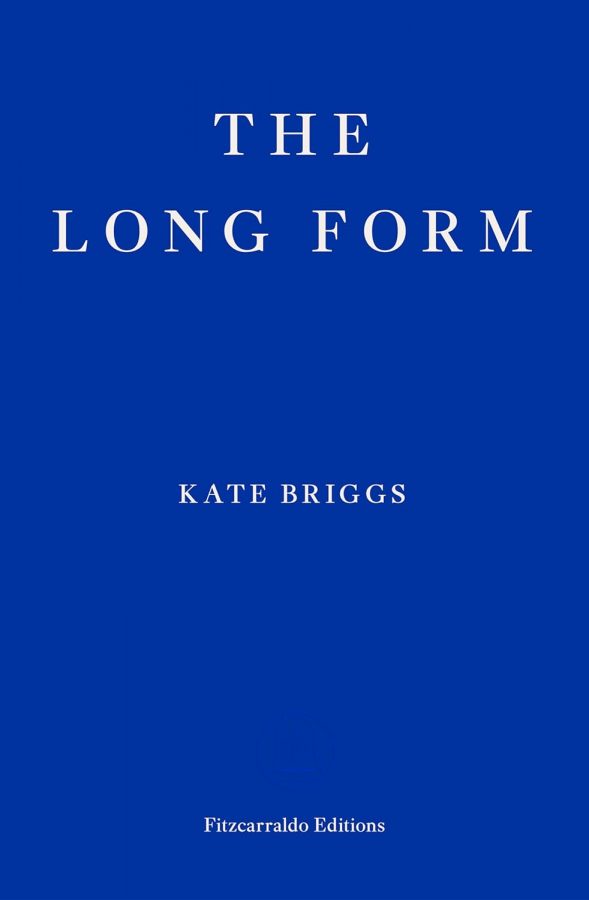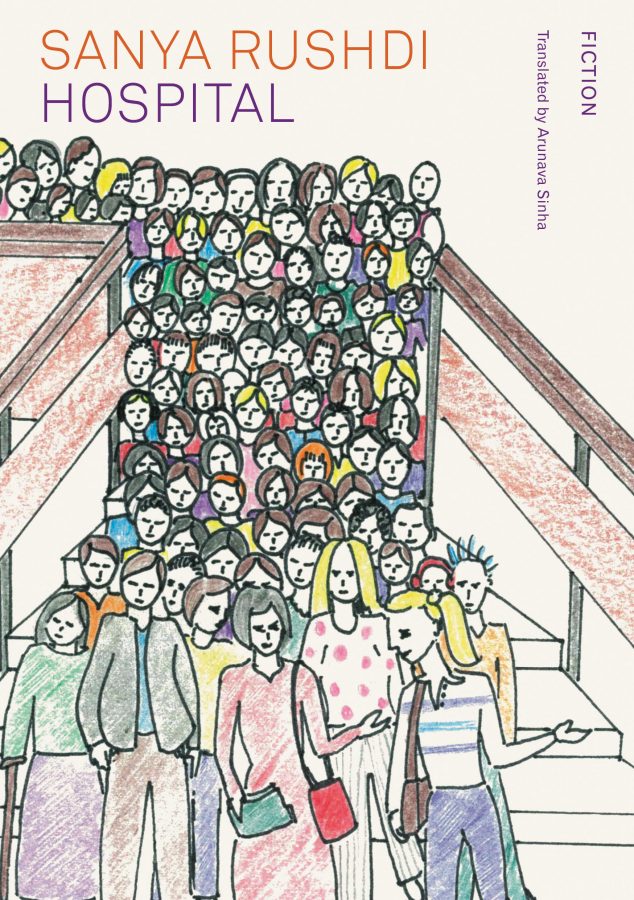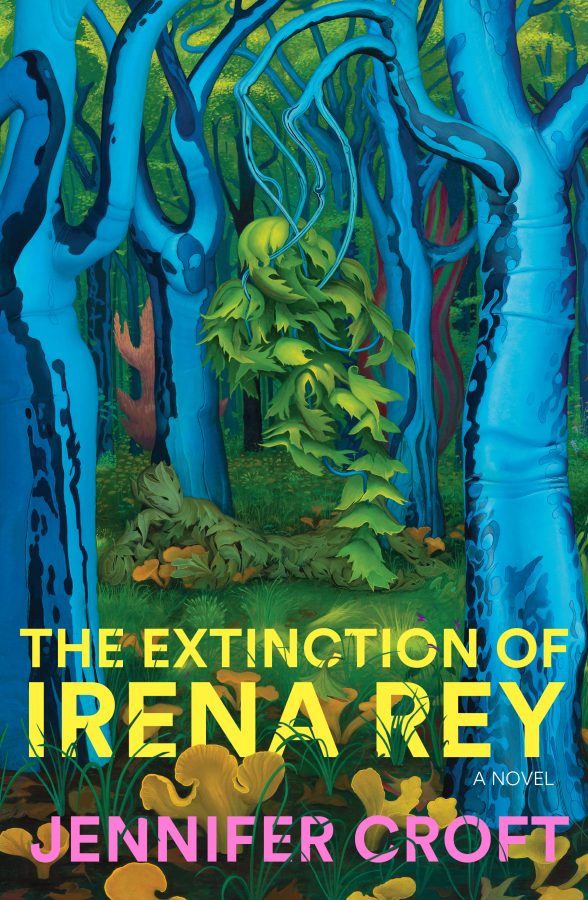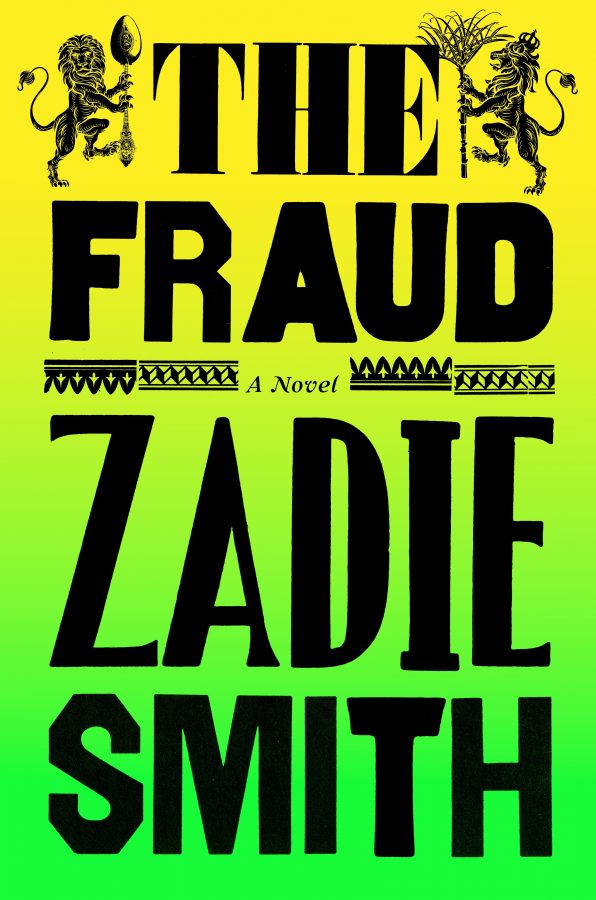KENNETH NGUYEN, a Vietnamese-American patriot
KEN NGUYEN, a congressional staffer
K NGUYEN, an Antifa activist
6 JANUARY 2021. A nondescript room in the US Capitol Building. A Confederate flag is planted in a bin in the corner. Beside it is the flag of the Republic of Vietnam, three horizontal red stripes on a yellow field. Three young men stand around a book on the floor. They each have their phones out, cameras facing each other.
KENNETH NGUYEN (Reaching for the book): I think this is –
KEN NGUYEN: (Grabbing the book out of Kenneth’s hand) Mine.
K NGUYEN: (Laughing) I can’t believe you two, of all people, have read The Committed.
KEN NGUYEN: Is that so unbelievable?
K NGUYEN: Considering it’s not even out yet –
KENNETH NGUYEN: Typical elitist leftie. You think you’re the only ones who read books. This will come as a great shock to you but I’ve read all of his books. Actually, I’ve read every book published in English by a Viet diaspora writer since 1975. I’ve got a SubStack, ‘The Vietnamese Patriot’. That’s where I put all my reviews. The Committed got 2 stars – the characters left me cold, I mean, why are these Vietnamese refugees running around Paris quoting Julia Kristeva and Jean-Paul Sartre? And they’re always exclaiming! And of course, Viet Thanh Nguyen isn’t clear enough in his denunciation of the Communists. Anyway, that’s why the publisher sent me an advance copy.
KEN NGUYEN: I got mine off my Congressman – ever since he tweeted about anti-Asian racism, he’s been getting new books in the post. And I know what you mean about the writing. I guess I expected something a little different. I dunno. I loved The Sympathiser. And then he put out Nothing Ever Dies, a non-fiction book about Vietnam and war, and how every war is fought twice, on the battlefield, and then in memory. And he writes there – I underlined this passage so many times that the pen started to wear through the paper – he writes: ‘The basic dialectic of memory and amnesia is…more fundamentally about remembering our humanity and forgetting our inhumanity, while conversely remembering the inhumanity of others and forgetting their humanity.’ The whole point of the book is an attempt to move beyond that dialectic, to what he calls ‘just memory’ and an ‘ethics of recognition’. That requires of us that we remember our own inhumanity, ‘the unspeakable things from which we have profited’. To live with our ghosts, as it were. I thought that was beautiful – and profound. And I thought that The Committed would be a continuation of that: an exercise in just memory. And instead it’s –
K NGUYEN: A crime-romp through 80s Paris?
(Laughs again)
When I came to film the insurrection I did not expect to be in a bookclub with a MAGA asshole and a centrist stooge. It’s true though, that VTN seems to be having fun in this text. There’s no shortage of metatextual play and typographic experimentation – I particularly enjoyed the ‘ah-so-asshole’ font for the Boss’s OPIUM club.
KENNETH NGUYEN: Trust me, I didn’t expect to be stuck in a room with an Antifa terrorist, either.
KEN NGUYEN: He’s not a terrorist. He’s not even a Democrat. I’m so sick of being lectured by people like him – it’s so easy to be critical when you have no skin in the game. Backseat drivers!
(Turning to K)
I’d like to see how your principles fare when you finally get around to wielding any power – but of course you don’t have the guts. You’d rather stay pure than actually effect any change. But you forget that politics is the art of compromise.
K NGUYEN: Are – are you accusing me of being uncommitted? I can’t believe what I’m hearing.
KEN NGUYEN: As uncommitted as the Maoist PhD in The Committed. All radical talk, but really you’re just smoking pot and lecturing the truly committed about their errors in theory.
K NGUYEN: Look, let’s not argue, not when we have a common enemy – a literal fascist – right here.
(Points to the flags)
I mean, look at this shit. Although, you have to admit, it’s kind of fitting to see them together like this. Two reactionary regimes doomed to oblivion.
KENNETH NGUYEN: Do you have no self-respect? Or even any respect for your elders? How could you say that about this flag, when our parents suffered so much for its sake? And don’t say that I don’t know you, I’ve known too many just like you, happy to accept their gifts of freedom even as you spit on their memory.
(Gestures vaguely at the Confederate flag)
I say nothing about that – that has nothing to do with me. But every movement has its… unsavoury elements. The important thing is that we remember what our parents and grandparents went through to get our families here, to the land of the free. And that’s one thing I liked about The Committed, that’s what got it its second star. For all his leftie sympathies, he doesn’t disrespect his own history. He even begins the book in the first person plural: ‘We were the unwanted, the unneeded, and the unseen, invisible to all but ourselves.’ And he continues like that for the whole prologue, narrated by this ‘we’, this boatload of boat people. So you see it’s a book about recognition – who will recognise these unwanted, unseen people? And that’s what he does, he sees us. Even when he’s making fun of us, it’s affectionate. Like in that parody of a Vietnamese variety show, Fantasia – which is a nod, of course, to the Paris by Night shows our parents still have on VHS. As his narrator says, staging such culture shows are always an acknowledgment of cultural inferiority. And yes, the culture itself is mawkish and sentimental – all the songs at these shows are about ‘love and sadness’ – but he sees us, even if he sees us as ‘tacky refugees’. And he’s right! We are tacky. We like our comedy slapstick and our philosophy lowbrow. There is something affirming in seeing ourselves seen with such intimacy.
KEN NGUYEN: But isn’t it satire? Isn’t his tongue always firmly in cheek? Even the ‘we’ with which he begins the novel – he shows that what these unwanted people want is always exclusionary: ‘We wanted benevolent leaders who represented the people, by which we meant us and not them, whoever they were.’ As for Fantasia, if this is him seeing the diaspora for what it is, it is not intimacy but familiarity, the kind that breeds contempt. The show’s greatest fantasy, his narrator says, is to forget for a moment the reality that ‘the people who most hated Vietnamese people were other Vietnamese people.’ Diasporic culture isn’t just tacky – it’s amnesiac.
KENNETH NGUYEN: Is he still tongue-in-cheek when his narrator says that ‘being connoisseurs of criticism did not prevent us from being deeply grateful to see our people on screen?’ Was Viet Thanh Nguyen being satirical when he co-founded the Diasporic Vietnamese Artists Network? According to its mission statement, DVAN believes that ‘the stories and aesthetics of a thriving Vietnamese diaspora can unite our global community. Our mission is to celebrate and foster diasporic Vietnamese literary voices.’ What is that, if not the politics of recognition? And how else to understand the name on the narrator’s passport: VO DANH. That is, NAMELESS, ANONYMOUS, UNKNOWN. It is, as VTN points out in Nothing Ever Dies, the name marking the gravestones of the many unknown soldiers in provincial Vietnamese cemeteries that are ‘dusty and neglected, the grass withered, the tombs arrayed on bare earth’. And now VO DANH, the forgotten man, speaks! And what does he have to say? Why, he speaks of cognac snifters ‘that fit our hands like the most perfectly shaped breasts’, of ‘uteruses as dusty as the Sahara’, of luscious secretaries and a whore with a heart of gold. After all, why not? Aren’t we men, with men’s eyes and men’s desires?
KEN NGUYEN: Oh, I agree that there’s an element of reclaiming Asian male sexuality here. But he undermines that through Vo Danh’s nascent feminism. He goes from talking about a near universal male gaze – ‘febrile brains that could not pass ten minutes without a sexual fantasy crossing its field of vision. Men were all the same, or at least 90 to 95 percent of them’ – to reading Kristeva and de Beauvoir and realising that he had never once tried to listen for his lovers’ pleasure. And I’ve got to say, the development of this point is a little crude, culminating as it does in Vo Danh going down on Madeleine, the whore with a heart of gold – ‘I knelt voluntarily’ – and the gift to her of his share of the loot from the conclusion of the drug-dealing plot line. Oh, and at the end of this confession – the whole novel, like The Sympathiser, is structured as a confession – at the end, it is sexism that Vo Danh is ‘guilty, guilty, abjectly guilty’ of – a guilt he shares with the wider community of Vietnamese manhood. So it strikes me as a bit of a mug’s game, trying to reclaim a masculinity that then needs to be smashed.
KENNETH NGUYEN: I suppose it’s true that Vo Danh is not a very successful Casanova. He literally goes limp at the critical moment.
K NGUYEN: (Sighs) You’re both completely missing the point. Which isn’t surprising, of course. Yes, it’s a text about recognition. But it isn’t playing identity politics – or at least, it isn’t only playing that game. It’s a response to Franz Fanon’s thesis about the formation of colonised subjectivity: that is, the madness that comes from living with a daily violence that cannot be named as such, that instead goes under the name of civilisation or progress. Fanon, remember, was a psychiatrist. I think in today’s language we’d talk about gaslighting – to be colonised was to experience a profound gap between the reality of your lived experience and the reality being fed to you by your oppressors. Fanon said that the only way to avoid going mad was to see things for what they are. And the only way to see things as they are is through the cleansing violence of anti-colonial struggle.
(Wheels out a whiteboard from next to the bin)
The text is actually structured through a series of different subjectivities, moving towards the Fanonian position of seeing things as they really are.
(Pulls out a marker from his pocket, and writes ‘WE’)
So, as already noted, the text begins in the first person plural. Here, VTN gives us the most reactionary colonial subjectivity – quite literally counter-revolutionary: ‘We wanted a revolution that would overturn the revolution we had just lived through.’ But also a ‘we’ only insofar as each individual boat person is equal in avarice and self-concern: ‘We wanted to live in a society of equality, though if we had to settle for owning more than our neighbour, that would be fine.’ Notice the emphasis on ownership. This is a collective subject of would-be bourgeois property owners: ‘In sum, we wanted to want for nothing!’
(Writes ‘ME’)
After the prologue, we move to the beginnings of self-knowledge – here, through confession. It is a self with an explicitly European genealogy. As Vo Danh says, after Rousseau, ‘I learned to love confessing’. But as a way of coming to know himself, it is immensely painful: throughout this section, he is learning to see himself through other’s eyes – for instance, the eyes of the socialist French politician known only by his triple barrel initials, BFD, and his own ‘aunt’, an assimilated Viet living in Paris. As The Sympathiser, Vo Danh’s mind was always split in two – already a reference to the self-alienation of the colonial subject – but now the balance between the two minds has ‘suddenly tilted too far right’, now he thinks more and more ‘about me and me alone.’ This is a tilt towards individualism, towards capitalism. Self-knowledge as self-love; it is little wonder that this is the section in which Vo Danh becomes a drug dealer. It is here that we have a play on Althusser’s theory of interpellation. A policeman yells out ‘Hey you!’ and Vo Danh, with a pocket full of hashish, freezes. It turns out the policeman is calling someone else on the street, a homeless man, but Vo Danh’s reaction is telling: the former revolutionary is now the good subject, ready and waiting to be hailed by the law, in his ‘master’s language’ no less.
(Writes ‘MYSELF’)
The transition from ‘me’ to ‘myself’ occurs through a cocktail of drugs and violence. Here we see his self-alienation take root: ‘Was I a revolutionary or a reactionary? And if I was a revolutionary, what did I believe in? To what was I committed? And was I myself or another?’ We’re clearly in Sartrean territory now – the problem is classically existentialist. Like Sartre’s Roquentin, Vo Danh’s nausea is precipitated not only by the drugs and the fight but by the worldly constraints on his free consciousness, a dilemma that can only be resolved through an enforced game of Russian Roulette – à la The Deer Hunter – at the end of the section. It is within the total unfreedom of being told to put a gun to his head that Vo Danh finds true freedom – how French! how existential! – as he, or the mad part of him, wills himself to pull the trigger, over and over again.
(Writes ‘I’)
Bringing us to I, in which we find Vo Danh committed not to a cause but to an asylum. Not that he’s insane, except in the sense that insanity is the only sane response to a mad world. Which is why we find him reading Fanon’s Black Skin, White Mask – he is finally beginning to see things for what they are. Through Fanon, he begins to see his own internal conflicts as a person of colour – between, in Fanon’s words, asking ‘others to pay no attention to my skin’ or else wanting ‘them to be aware of it.’ Recognising one’s self-contradictions allows for one’s conflicting selves to be reconciled. Or as Fanon puts it – and as quoted rapturously by Vo Danh: one can ‘rise above this absurd drama that others have staged around me, to reject the two terms that are equally unacceptable, and, through one human being to reach out for the universal.’
KENNETH and KEN applaud wildly.
K NGUYEN: But that’s not the end.
KENNETH and KEN immediately stop applauding, and begin to look mutinous.
K NGUYEN: That’s not nearly the end. There’s still two sections to go!
KENNETH and KEN groan, begin playing with their phones. K continues, undeterred.
K NGUYEN: This is where it gets interesting. For having got this far with Fanon, Vo Danh leaves him behind. Remember that for Fanon, anti-colonial violence ‘detoxifies’. It ‘frees the colonised from his inferiority complex and from his despair and inaction.’ But at the end of ‘I’, when Vo Danh has the opportunity for a little cleansing violence, he chooses instead to forgive.
(Writes ‘Vous’)
And that takes us right out of individual subjectivity altogether. ‘Vous’, of course, is the plural or formal form of ‘you’ in French. Having made the magnanimous gesture of forgiving his enemy, Vo Danh now realises that he is in need of forgiveness himself. For his misogyny, for general Vietnamese complicity in the horrors unfolding in Pol Pot’s Cambodia, for his specific complicity in the rape and torture of a communist agent and the deaths of all the ghosts who haunt him.
KENNETH NGUYEN: (Mostly to himself) Typical virtue signalling bullshit…
K NGUYEN: Actually it’s the pivot for the whole text. Once he realises he needs forgiveness, Vo Danh’s story is no longer a liberal Bildungsroman, the coming into self-hood of the individual subject. No more transcendental ‘I’! Or me or myself, for that matter. Instead we get a relational subjectivity – this is why VTN has Blood Brother #1 quote Levinas: ‘the birth of a being from nothingness, absolute beginning, is an event historically absurd.’ From the very beginning, from before the beginning, before there is an I or a me or a myself, there is the Other; and the I is always formed in relation to that Other. In Levinas’ philosophy, I owe my I to the Other – this is not the kind of debt that can be repaid. Instead, it is the foundation of an ethics that Levinas often illustrated through a quotation from Dostoevsky’s Brothers Karamazov: ‘Each of us is guilty before everyone for everyone, and I more than the others.’ We are a far cry from Fanon’s cleansing violence! Where Fanon wishes to carve out some post-colonial space for himself and his fellow people of colour, Levinasian ethics begins with the recognition that even my justified claims to space come at the expense of the Other.
(Writes ‘Tu’)
This, then, is Vo Danh – and VTN’s – way out of the Fanonian cycle of violence. Ceding space rather than carving it out, dissolution of the self rather than coming into one’s authentic self-hood. The text culminates in the loss of all illusions, even the illusion of the capital O Other – this final section is Tu, after all, not Vous – the informal second person – you rather than You. Which is to say that by the end, Vo Danh is committed not to a Big Other but to nobody. Again he quotes an anti-fascist luminary, this time Federico García Lorca: ‘I will always be on the side of those who have nothing and who are not even allowed to enjoy the nothing they have in peace’. But here is the kicker – how is one to be on the side of the nobodies? Just think – he answers Lenin’s ‘what is to be done’ with nothing. Nothing is to be done!
KEN NGUYEN: And yet he says he is not nihilistic. After all, he says that he is still committed to the revolution, to the infinite dialectic. Only he no longer believes in the sacrifice of a million nobodies. He believes instead that ‘history’s wheels need not be oiled by blood.’ He believes that ‘nonviolence could detoxify us and free us from our inferiority complexes’, that ‘instead of making us mirror images of our colonizers, nonviolence could break the mirror altogether and liberate us from the need to see ourselves in the eyes of our oppressors.’ If you want radical, here it is: this is Bartleby’s ‘I would prefer not to’, transposed into an explicitly political setting. Vo Danh refuses to kill his enemy, the rival drug dealer. But he’s also refusing to save himself from his boss’s wrath. He is not trying to survive, to seize power. Politically, he is not trying to change the melanin count of those in power – he is trying to do away with a structure of power based on violence altogether. This is, as Walter Mignolo would say, decolonial rather than anti-colonial: he is not trying to change the content of the conversation – he wants to change the terms of the conversation.
K NGUYEN: But how radical is it, really? Sometimes it seems as if VTN’s real commitment is to a bourgeois literary morality, Neil Gaiman’s saccharine books as little empathy machines. Isn’t that the whole point of Vo Danh being a sympathiser, a man of two minds, who can look and feel both ways? ‘If I looked at someone enough, if I listened to him long enough, I could slip his face onto one of mine and observe the world through his eyes.’ By the end of the text, he makes it explicit: ‘nothing can be done, except for this, the words you have written, your only remedy, the thing to which you are most committed.’ This isn’t radical. It’s pandering to the politics and sensibilities of the Professional Managerial Class who, let’s face it, will be the only ones to read this text anyway.
Faint gunshots can be heard from a distant part of the building. All three NGUYENS turn pale, KENNETH most of all.
KEN NGUYEN: You see – it’s not a game. You want violent revolution? Well here it is.
K NGUYEN: I didn’t want this one.
KEN NGUYEN: Isn’t that VTN’s point though? That you don’t get to choose?
KENNETH NGUYEN: This – this isn’t what I wanted either.
KEN NGUYEN: He’s laughing at both of you. VTN, I mean. Don’t you see? You are the revolutionaries who take yourselves, rather than the revolution, too seriously. You are the ones who ‘cock your guns at the crack of a joke’. That seems radical enough to me – to ask a reader not to feel nor even to think but to laugh. Anyway, what is this obsession with reading novels as manifestos? It’s not a blueprint for revolution!
K NGUYEN: And yet, isn’t Sartre right when he says that ‘Nobody can suppose for a moment that it is possible to write a good novel in praise of antisemitism?’ And if we agree with that, doesn’t it follow that there is an intrinsic connection between morality and aesthetics? That bad politics makes for bad art, and vice versa?
KENNETH NGUYEN: Absolutely. Adorno said it was an undeniable statement. And he added that it would also be impossible to write a good novel in praise of Stalin’s show trials. Which might be the only time I’ll ever agree with Adorno! For him, the political falsehood stains any aesthetic achievement. Or to put it the other way around, the straining for aesthetic effect turns the artist’s politics into a lie. Adorno uses Brecht as an example: in Mother Courage and Her Children, the eponymous mother is a petty war profiteer, trailing after the Protestant army during the Thirty Years’ War. The thesis of the play is that war feeds on war: the camp follower’s use of the war to make a life for her children makes her directly responsible for their ruin. Yet, according to Adorno, the play is unable to speak to Brecht’s present. The society of the Thirty Years’ War is not a functional capitalist society, and as such Brecht is unable to show how Mother Courage’s responsibility follows rigorously from the fact of the war or her behaviour as a profiteer. Instead, he must rely on a trick of genre – she is absent at the critical moment, when her daughter is caught by Catholic soldiers. This ‘picture-book’ technique, as Adorno calls it, which Brecht ‘needs to spell out his thesis prevents him from proving it.’
K NGUYEN: I’m reminded of what Derrida wrote about Tran Duc Thao.
KENNETH NGUYEN: Who?
K NGUYEN: You know, Jacques Derrida, the –
KENNETH NGUYEN: I know who Derrida is! I meant the other one –
K NGUYEN: Oh, sorry. Trần Đức Thảo. Better?
KENNETH NGUYEN: Rings a bell…
K NGUYEN: (Rolling his eyes) He’s only Vietnam’s greatest ever philosopher. I would have thought a patriot like you would be more than familiar with him.
KENNETH NGUYEN: Was he a Communist?
K NGUYEN: Most certainly. He was one of those brilliant natives who got a scholarship to study in the Metropole. And once he was there, he fell in with Sartre and the Le Temps Moderne crowd.
KENNETH NGUYEN: That would explain the non-familiarity. You might have noticed – I don’t have much time for Commies.
K NGUYEN: Ah, but he was also a patriot! He became the leading anti-colonial voice for Le Temps Moderne. They say he was even a great influence on Fanon. His magnum opus was Phenomenology and Dialectical Materialism. It was this text that Derrida said was a prime example of Husserlian phenomenology, a discipline of ‘incomparable rigour’. And Thảo’s work, though it was ‘a book which is no longer discussed today, a book whose merits can be very diversely evaluated’ nevertheless ‘pointed to a task, a difficulty and no doubt an impasse.’
KEN NGUYEN: It sounds like quite the backhanded compliment.
K NGUYEN: Exactly! It was the stakes of what Thao was attempting – the synthesis of phenomenology with Marxist historical materialism – that was significant. No matter that he failed – it was a glorious failure!
KEN NGUYEN: So you’re saying The Committed is a failure?
K NGUYEN: I’m saying that there’s a problem of form here, just as Brecht ran into in Mother Courage. Take Ban’s storyline: Vo Danh’s best friend, reactionary, committed anti-communist. In the end, he kills himself once he realises his two blood brothers have actually been Communist spies all along. Meanwhile, VTN’s been building up this theme of forgiveness, of the need to forgive the unforgivable. And Ban can’t do that – he saw his wife and child die on the tarmac in The Sympathiser – and so he in turn has to die. Because, like the diaspora community, he can’t handle living with the contradictions of forgiving the unforgivable – that is, of moving on. But what happens if we ask, after Adorno: in using this picture-book technique to spell out his thesis, does VTN undermine it? Is he saying you have to kill the committed within? Or is he saying that those counter-revolutionaries need to, or simply will, die off? Ambiguity might be a marker of sophistication in literature, but is it good politics?
Shouts can be heard from behind the doors leading into the room. KENNETH looks around nervously.
K NGUYEN: And at a more structural level, I wonder if there is a problem with temporality as well. You see, Vo Danh is a man out of time. Unlike The Sympathiser, this text is interested not in American neo-imperialism but in the original European kind. But Vo Danh is not truly a witness to French colonialism – yes, he is the bastard son of a French priest, but he is fundamentally post-colonial. And unlike the Algerians, he comes from a post colony that the French are not all that invested in the memory of. Which means that much of the colonial experience is recounted by Vo Danh in righteous monologues. Compare that to Ralph Ellison’s eponymous Invisible Man, whose picaresque travels take him right through and into the heart of the grotesque racial landscape of twentieth-century America.
KENNETH NGUYEN: (Mostly to himself) Ellison, of course, being a major influence on VTN – he even named his son after him!
K NGUYEN: Which makes Vo Danh not only a man without a name, but a man without a struggle. He cannot be an anti-colonial, because he lives in the post colony. But he is not postcolonial, engaging neither with the postcolonial Vietnamese state – apart from a generic bout of torture and re-education in The Sympathiser – nor with the postcolonial diaspora, for even the ‘we’ with which the text begins is a red herring. Vo Danh is not one of those boat people, he is not truly a part of that community. And just as Brecht, in Adorno’s reading, could not speak to his time – I wonder if VTN can speak to this.
(Gestures towards the doors, behind which the shouts are getting more insistent. After a pause, he continues)
And yet there is something in this text that means I keep coming back to it – the pointing to a task, or an impasse, as Derrida said of Thảo – something that remains to be done, which VTN has gotten closest to doing: representing the postcolonial Vietnamese subject.
KEN NGUYEN: No no. None of this can be right. You can’t speak of art as having a thesis. Otherwise every novel is just an essay.
K NGUYEN: But it comes back to his commitment to literature. In a world of such injustice and suffering the turn away from violence to words must be justified. Vo Danh cites Brecht: ‘Art is not a mirror held up to the world but a hammer with which to shape it.’ So what does The Committed shape the world into?
KENNETH NGUYEN: Maybe it doesn’t shape the world. Maybe in 2021 a book is not up to that task. Imagine, words printed on paper!
KEN NGUYEN: No, it doesn’t – it can’t – shape the world. But maybe a novel is still a good technology for shaping the self.
K NGUYEN: So the text is a training, not a manifesto. A training in the formation of a post-colonial subjectivity. One that is revolutionary but non-violent. A subjectivity attuned to nothing, to nothingness. One that can live with ghosts.
KENNETH NGUYEN: Even if that means living in contradiction. Life isn’t black and white.
K NGUYEN: Or yellow and red.
KEN NGUYEN: And so he avoids the trap that Adorno identifies for the committed writer, who in the final analysis is always committed to power. Vo Danh and VTN commit to powerlessness here. To laughing at oneself.
K NGUYEN: I’m imagining merch – one of those bracelets, with WWVDD printed on it. What Would Vo Danh Do!
KEN NGUYEN: Be Unknown, Be Nobody.
KENNETH NGUYEN: Read with generosity and openness.
K NGUYEN: And read the Europeans, even if your project is ultimately a project of dewesternisation.
KENNETH NGUYEN: Yes – at one point he even has Vo Danh confess in reference to Voltaire’s Candide that it is difficult to hate the French because ‘they have given us words like this’.
KEN NGUYEN: Indeed – in the acknowledgements at the end of the book he lists the authors he’s in conversation with: Adorno, Althusser, de Beauvoir, Benjamin, Césaire, Cixous, Derrida, Fanon, Gramsci, Guevara, Ho Chi Minh, Kristeva, Levinas, Rousseau, Sartre and Voltaire. That’s a rather Continental reading list.
K NGUYEN: It’s like Fanon said. The idea is to complete the Enlightenment, not to throw it out. It was Europeans that came up with the ideas for liberation – they just never acted on those ideas with sufficient violence, or sufficient thought. Which left Europe in motionless motion, the logic of equilibrium. We see that in Vo Danh’s depiction of French progressives like BFD and the Maoist PhD – their politics are both hypocritical and ossified. For Fanon, these European ideas are an inheritance – but as with every inheritance, it’s what you do with it that matters. Fanon believed that Africans could complete the Enlightenment by creating a new kind of state, one that transcends the duplicity of the European state – violent means, non-violent rhetoric – through the lived experience of colonised Africans.
KEN NGUYEN: And VTN here is doing something similar, only without the violence. But the challenge is the same: how to complete and correct progressive European thinking?
K NGUYEN: To accept this inheritance and at the same time break free from it. It’s a thrilling project. Maybe the only project worthy of writing a whole book, in this year of our Lord 2021. At least it seems so to me. But then, The Committed is part of my inheritance now isn’t it? No matter what I think of it. I’ve read all the same books, my grandparents live in Paris. And not in the nice parts, but in the banlieue full of black and brown and yellow faces – the faces VTN brings to life in The Committed. It’s too close. It’s like it was written for me – and for that very reason I can’t see the text properly. I’m trying to write a novel myself and I keep coming back to this one.
KENNETH NGUYEN: Your grandparents live in Paris? Mine too.
KEN NGUYEN: So do mine! And let me guess – we’re all writing novels about them?
KENNETH and K nod.
KEN NGUYEN: What happens in yours? Mine starts in their apartment, on the outskirts of Paris –
KEN is cut off by all three doors into the room bursting open at once. The room is suddenly full of noise and teargas. Insurrectionists and Capitol Police come streaming in. Batons and flagpoles are raised, and the three NGUYENS are carried away in separate directions by the crowd.
